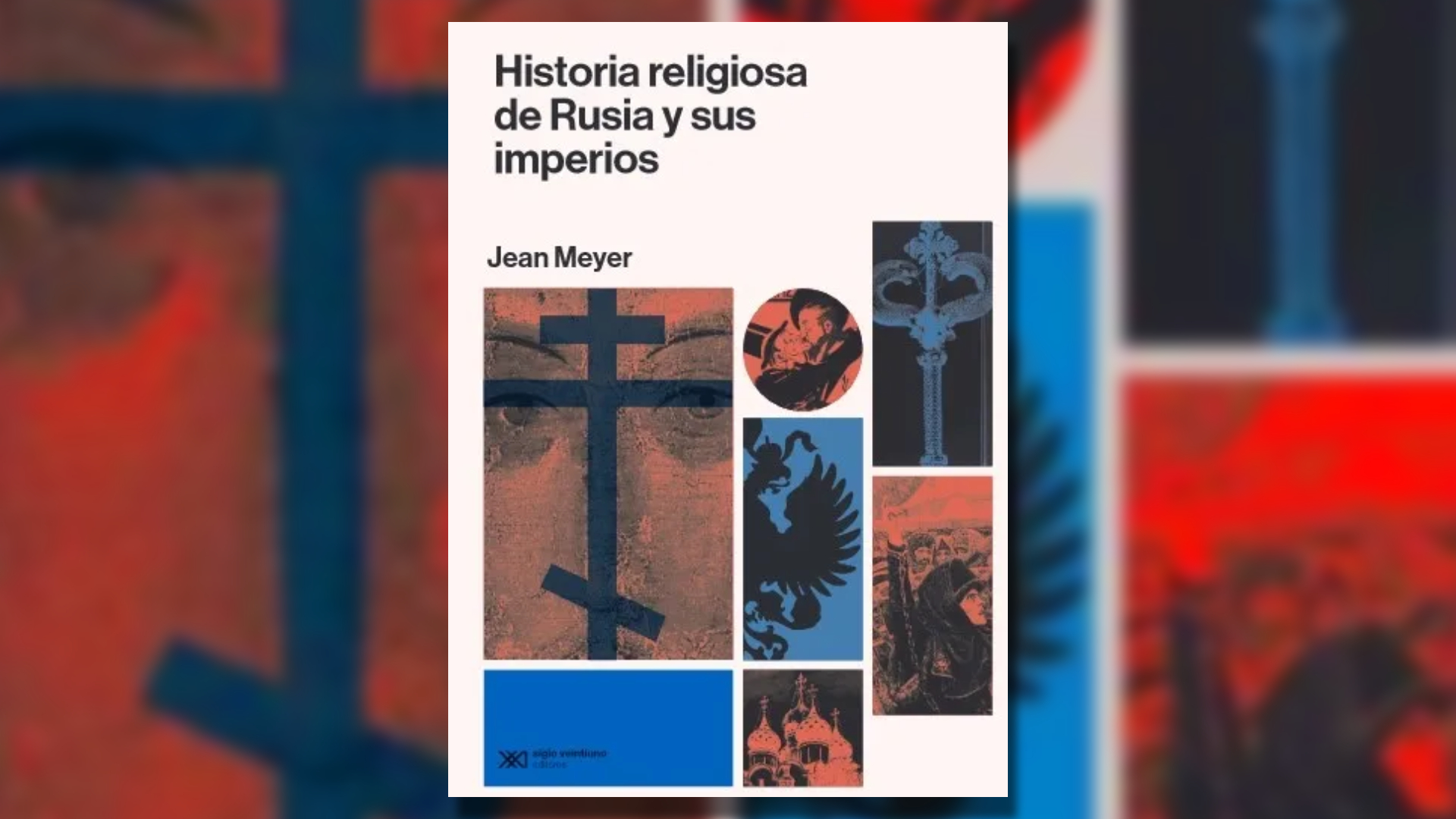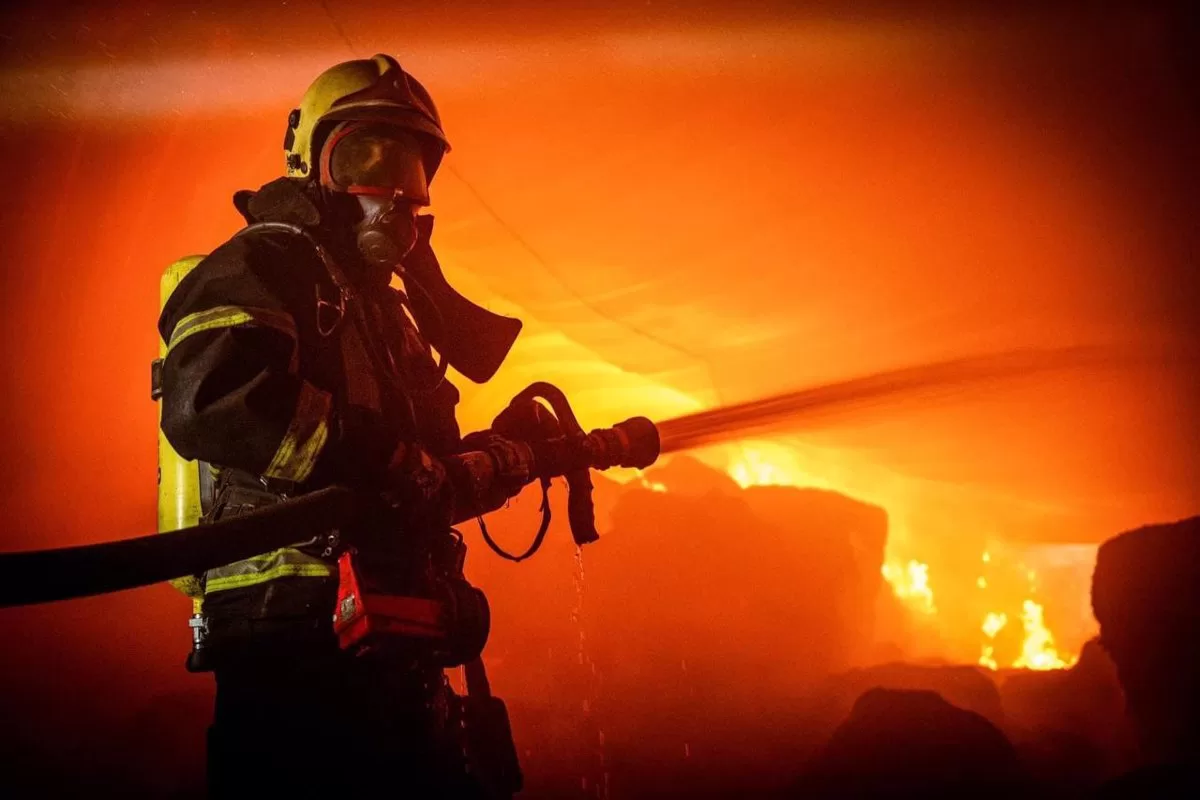The most recent publication of the French-Mexican geographer and historian Jean Meyer It is a book with which readers will be able to understand the current course of our world, at the mercy of the conflict between Russia and Ukraine, from which each power seems to want to take advantage.
There was no similar book in Spanish, said its author, and for this reason he felt the need to write it. “It is a subject that I have perceived for many years, that of religion and society”, he said.
It may interest you: “Culture is not automatic”: Nuccio Ordine, Princess of Asturias Award for Humanities 2023
Inside the pages of “Religious history of Russia and its empires, Meyer assures that “the religious experience of Eastern Christianity has shaped Russian identity; and also that of the Ukraine and Moldova, which today are independent nations, but which belong to the East Slavic world and have an Orthodox majority.
A few years ago, when he published “The great controversy: the Catholic and Orthodox Churches. From the origins to our days Meyer did it to try to understand the reasons why both churches, both Christian, share the same dogmas, the ideas related to the Trinity, the Virgin, the divinity of Jesus Christ and the sacraments, despite the fact that they have been separated from each other. the other for nearly a thousand years. Meeting has been impossible for them and doubts about it led him to undertake the investigation that he reports on in this new book.

Published under the imprint of XXI centurythe book presents a journey through more than a thousand years of the Churches present in “all the Russias”, from which it found its seed in kyivuntil the one who lived with the soviet regime. From the inheritance of the glares of constantinople until the one that was forced to live in hiding.
It may interest you: Arturo Pérez-Reverte: “We are living the resentment revolution and we cannot stop it”
Baptized at birth in the Catholic, Apostolic and Roman Church, anointed during his youth in the Orthodox, the author makes a stupendous synthesis of the immense bibliography that has addressed this human adventure in a very personal way. In “Religious history of Russia and its empires”Meyer carries out a slow x-ray of Russian spirituality, from the 10th century to the fall of the Soviet Union, an exceptional spirituality that at different times allowed people to overcome the yoke of authoritarianism.
Although the book deals with the conflict in the Ukraine, it does not deal specifically with the war that is unleashing there. From its first pages it already makes it clear. Meyer’s intention goes further. He tells, for example, how the third Rome was originally built on Russian soil and was affected at various times by the rivalry between kyiv and Moscow, long before the time of Ivan the Terrible.
The historian deals with the reference to the origins of Russia and the debates in this regard between Nordic and Ukrainian academics, which increased after the conversion to Christianity of Prince Volodimir, who was the monarch of Kievan Rus, at the end of the first millennium of the era. modern.
“(…) the historiographical dispute began two centuries ago: the nationalist historians of Russia and Ukraine have been at odds since 1850 and are fighting today more than ever to define the terms Russian and Russia”, Meyer writes. In that battle, he explains, the borders of the old Russian regime are erected in the Ukraine, between the years 988 and 1240, and the Moscow of the moment.
It may interest you: Feminism, denunciation and passion: this is the novels of María del Mar Ramón, the writer who accompanies Jorge Rial
“(…) in the Russian imperial world we find cubed all the positive and negative possibilities of Christianity. The best and the worst of Christianity we have in the Catholic Church; but, in the case of the Russians, it is excessive in everything, for better or for worse. We have the most beautiful effects of spirituality, the art of orthodox icons, but also absolute intolerance”, comments the author, in previous interviews.
The investigative work of Jean Meyer In this book, he allows readers to tour the many Russias that have existed throughout history. From the Nordic and the Mongolian, that of the Skavronskys and the Romanovs, to that of Stalin and Putin. In all of them, religion was a pillar of the social and governmental structure, especially after the expansion of the orthodox current of Christianity. By 1988, with Mikhail Gorbachev at the head of the country, more than 30% of the Russian population professed the Orthodox religion.
The author is emphatic in saying that religion has marked the past and present of the Russian people and, in many ways, is the starting point for several of the decisions they have made as a nation. Today, more than ever, it is once again an important part of daily and political life in Russia.
Keep reading:


